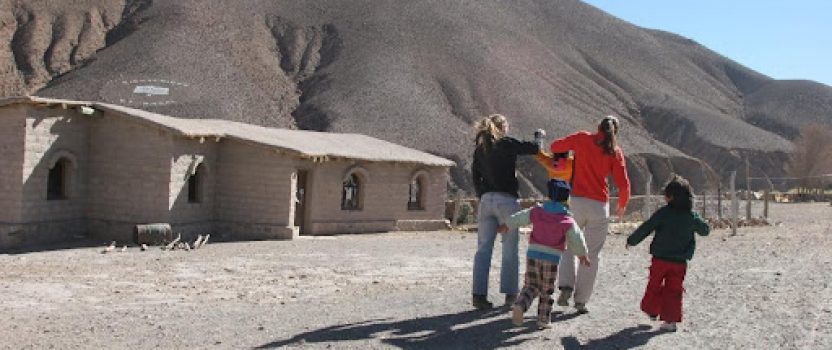RESOURCES FOR DEVELOPMENT
In the outburst of a global crisis, societies seek agreements to minimize its effects. It also represents an opportunity for civil organizations, companies, and governmental and private institutions to analyze which actions produce new tools and skills to attain the resilience needed upon those events. The cooperation agreement held by the Rural Community Network (in Spanish, Red Comunidades Rurales) with the renowned Inter-American Foundation (IAF) made it possible to simultaneously attack both the causes of productive development-related problems and the unexpected effects of a humanitarian crisis. This is how, in front of the COVID-19 pandemic, and thanks to the efforts of different sectors, the Bank of Rural Community Projects (BPCR, as per the Spanish acronym) was co-designed and implemented in our country.
The results are promising, more than 500 organizations and institutions (including strategic and technological allies, such as PwC Argentina, Force for Good / J.P. Morgan, Wunderman Thompson, the Embassy of Australia and organizations, such as the Argentine Network for International Cooperation and the Fundación Amalia Lacroze Fortabat) have gathered to share resources and experiences that help in a conclusive and innovative manner to avoid marginalization, violence, poverty, and other environmental and social problems from aggravating in the most vulnerable rural contexts of Argentina.
Today we face a new challenge. The recent and surprising closing of the Inter-American Foundation (IAF), including its liaison office in Argentina, seriously affected the positive impact the project was having for thousands of rural families and the future development of socio-environmental projects originally involved in the cooperation agreement. We were in a cooperation stage that, by means of joint strengthening actions, was starting to rise and replicate the results of this program at a regional level. It is worth mentioning that the IAF is a US Government-independent entity, which was created more than 50 years ago, and which makes donations for innovative, participative, and sustainable self-help programs in Latin America and the Caribbean.
Since the beginning, the BPCR has managed to launch 55 socio-environmental projects. Each organization commits to making a contribution of resources of its own, which varies from 25% of the requested funds, up to more than 100%. This represents a huge effort for the development of skills within community-based organizations, such as community-managed schools, associations, and other foundations. In this way, the social web strengthens and the communities have higher chances to grow and improve life conditions of thousands of citizens, even in the most remote and vulnerable places of a country. Innovation, the proper use of new technologies, the development of productive undertakings, technical training, education and the formation of strong learning communities are just some of the factors that characterize the good results in this program. Strengthening the tools that ensure fair and environmentally-sustainable human development is probably the largest challenge we face. Another great challenge is to promote regional exchanges with organizations from Latin American and Caribbean countries in order to replicate good practices and develop strategic alliances.
Notwithstanding the decisions made by the independent justice departments in the United States, we deeply regret the closing of the IAF. It means true commitment and transparency to us. We will keep on working together with the most vulnerable communities, focused on achieving new agreements with these criteria. Nowadays, participating in initiatives like the BPCR is to be a part of the search for solutions. We invite you to join us.
Join as a BPCR collaborator. Contact: [email protected]

